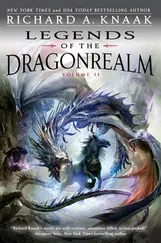Jim Harrison - Legends of the Fall
Здесь есть возможность читать онлайн «Jim Harrison - Legends of the Fall» весь текст электронной книги совершенно бесплатно (целиком полную версию без сокращений). В некоторых случаях можно слушать аудио, скачать через торрент в формате fb2 и присутствует краткое содержание. Жанр: Классическая проза, на английском языке. Описание произведения, (предисловие) а так же отзывы посетителей доступны на портале библиотеки ЛибКат.
- Название:Legends of the Fall
- Автор:
- Жанр:
- Год:неизвестен
- ISBN:нет данных
- Рейтинг книги:5 / 5. Голосов: 1
-
Избранное:Добавить в избранное
- Отзывы:
-
Ваша оценка:
- 100
- 1
- 2
- 3
- 4
- 5
Legends of the Fall: краткое содержание, описание и аннотация
Предлагаем к чтению аннотацию, описание, краткое содержание или предисловие (зависит от того, что написал сам автор книги «Legends of the Fall»). Если вы не нашли необходимую информацию о книге — напишите в комментариях, мы постараемся отыскать её.
Legends of the Fall — читать онлайн бесплатно полную книгу (весь текст) целиком
Ниже представлен текст книги, разбитый по страницам. Система сохранения места последней прочитанной страницы, позволяет с удобством читать онлайн бесплатно книгу «Legends of the Fall», без необходимости каждый раз заново искать на чём Вы остановились. Поставьте закладку, и сможете в любой момент перейти на страницу, на которой закончили чтение.
Интервал:
Закладка:
In his cabin the old man barked an occasional order up to Asgaard and continued to school Tristan relentlessly. They took double watches keeping awake with Jamaican coffee. For a month all else was wiped from Tristan's mind except ingesting sixty years of his grandfather's experience: his sleep was troubled by imagined line squalls, frayed mooring lines, split masts, the strange giant waves found off Madagascar on occasion in the winter. They saw no sign of a German blockade as they neared the southern coast of England. They slipped into Falmouth at night where they were met by British intelligence. It was the old man's last arrival and he took permanently to bed that night aided by Tristan and his wife who had tallied his returns for over a half century. He was nearly merry when he took her hand and said that he was home for good.
Tristan was briefed the next day by an officer who had formerly been a factory manager in the Midlands. The officer was deferential and poured Tristan a drink as he nervously fingered a file. Then he asked if Tristan minded showing him how one went about scalping another human being; in his youth he had read a great deal of the literature of the American West but none of the authors had described the precise technique and he was curious. Tristan silently moved his hand in a slicing motion beneath his widow's peak and then made a swift ripping motion. It attracted his rarely used sense of humor and he said that one waited until the man was dead or nearly so depending on the degree of one's dislike and that you couldn't scalp a beheaded man because you needed an anchor to gain a good fulcrum. The Englishman nodded appreciatively and they went on about their business. The next morning the schooner was to be loaded with wooden cases marked tinned beef but which in fact held weaponry of a certain advanced nature. The cargo was bound for Malindi on the Kenyan coast to aid the British in their anticipated problems with the Germans at Fort Ikomo in Tanganyika. In this relatively early stage of the war they should have no trouble with the Germans in that they were flying an American flag but the situation could change momentarily and if Tristan were under fire he must scuttle the schooner. If the skirmish were of a minor nature as they neared Kenya a case of hunting rifles and shotguns consigned for Nairobi might be used in defense and that he should school his crew for that eventuality.
Tristan spent the afternoon sitting beside his grandfather's bed waiting for his midnight departure. While the old man slept he wrote Susannah and his father that he was on a mission for the government not realizing his letters would be censored and that he had been followed everywhere that day by an intelligence officer disguised as a Cornish fisherman. And writing the notes brought a strange sweep of sentiment over him as if for a moment his destiny was no longer so inalienably private and buried within himself. He imagined his father and Decker arguing about breeding lines and his mother in the parlor with the gramophone playing Cavalleria Rusticana. He saw Susannah sitting up in bed and stretching her arms in the first light, how her slight figure walked to the window to look at the weather surrounding the mountains and how she would come back to bed and look at him a long time without saying anything.
Some of our strangest actions are also our most deeply characteristic: secret desires remain weak fantasies unless they pervade a will strong enough to carry them out. Of course no one ever saw the "will" and perhaps it is a cheapish abstraction, one blunt word needing a thousand modifiers. When Tristan set sail for Africa that morning after a silent lamplit breakfast with his grandmother—she gave him a Bible wrapped in an untreated lambswool sweater she had knitted—-he was fulfilling a number of inevitabilities. Since his sixth grade geography class in a country schoolhouse he had dreamed of going to Africa, not for the hunting because One Stab had taught him a much more honorable and functional sense of hunting than to shoot an animal to gratify his ego, but merely to see it, to smell and feel and know it, to see how it jibed with the dreams of that child crazed with maps he once was. Another obsession was caused by the tales his father told of his few short youthful trips with his own father: a trip to Göteborg in Sweden one summer and another to Bordeaux and of the whale seen breaching in the North Sea. Always the expert horseman, once in his dreams Tristan envisioned a schooner as a giant seafaring horse jumping wave froth and pitching full tilt against swells. And there was the unspoken, unthought, unrehearsed sense that time and distance would reveal to him why Samuel died.
A week of brisk chill winds brought them around Cape St. Vincent where they headed southeast toward Gibraltar. Asgaard figured they had been averaging a hundred and fifty nautical miles a day, a grand pace that would slacken somewhat when they entered the Mediterranean. Twice they had dropped the sails for rifle practice. Tristan had been delighted on opening the case to find seven Holland & Holland rifles of varying caliber including an elephant gun plus four shotguns. But the seas were too rough and it was nearly impossible to time the aim on a rising or falling swell to hit the bottle off the stern. Only Tristan and one of the Cubans who was later revealed to be an exiled Mexican could do it. Asgaard, the peaceful Dane, closed his eyes as he pulled the trigger; one of the Cubans couldn't stop giggling and the other was stiff and serious but inexperienced.
A day and a half into the Mediterranean passing Alboran, a German destroyer in the early evening signaled them to reef and heave to but a squall and the gathering dark gave them a clean escape. For safety Asgaard thought it wise to skirt the Algerian and Tunisian coast beyond which point they would supposedly be safe, at least until they reached the Indian Ocean. It proved true though Tristan was enervated and sleepless when they were becalmed for three days off Libya. Against orders they stopped in Crete at Ierapetra long enough to take on fresh water to replace their brackish supplies. At the wharf an obviously German shopkeeper studied them furtively and the Mexican offered Tristan to cut the man's throat. The crew had not been apprised of the mission but none of them believed the cases in the hold held beef. And to Asgaard's dismay Tristan dispensed totally with the shipboard formalities that separate captain from crew, formalities that he had loathed and chaffed against in the army. He ate with the crew, occasionally trying his hand at the cooking, played cards with them and had begun taking guitar lessons from the especially shy and taciturn Cuban who called him caballero instead of captain. Neither was the liquor rationed to the time-honored two ounces a day: the liquor stores were left unlocked though no one abused it. Asgaard was pleased two days out of Falmouth, though, when Tristan announced at dinner that anyone who didn't work out would simply be pitched overboard. But the crew was swift and efficient with a high morale partly because they were headed south into the warmer climes they loved.
The schooner arrived one dawn at Port Said and passed into the Suez Canal uneventfully. Only Tristan and Asgaard were disturbed by the extreme heat of the Red Sea. The heat was mitigated a great deal when they made the Strait of Bab el Mandeb and entered the stiff southerly breezes of the Indian Ocean in the Gulf of Aden. Two weeks later they reached Malindi only to find that the rendezvous had been changed to Mombasa two days' sail further south. Tristan had relapsed into grief to the point that he secretly wished to encounter a German gunboat, but the exchange in Mombasa was hitchless. The British officer said they were under no immediate further obligation for a partial reward for the danger of their voyage. The officer said he was recommending a decoration at which point Tristan became heartsick and walked from the room. After more than a month at sea the sight of this officious popinjay sickened him. Asgaard had been to Mombasa before and was spending his shore leave with a French widow so Tristan with the two Cubans and a Mexican in tow took the new train to Nairobi where they spent three days drinking and whoring themselves to exhaustion. Tristan made a deal to take a load of ivory, elephant tusks and the false ivory of rhinoceros' horns thought to be to the Chinese an aphrodisiac, to Singapore. In Nairobi he smoked some opium and rather liked its dreamy mind-banishing propensities. On their way back to the port Tristan had his photo taken at a fuel stop with a dead rhino's head across his lap. He paid a frayed, alcoholic English photographer twenty dollars to send the photo to One Stab, c/o William Ludlow, Choteau, Montana, USA. The message was to read, "Here is a dead one who stopped the train if only for a moment."
Читать дальшеИнтервал:
Закладка:
Похожие книги на «Legends of the Fall»
Представляем Вашему вниманию похожие книги на «Legends of the Fall» списком для выбора. Мы отобрали схожую по названию и смыслу литературу в надежде предоставить читателям больше вариантов отыскать новые, интересные, ещё непрочитанные произведения.
Обсуждение, отзывы о книге «Legends of the Fall» и просто собственные мнения читателей. Оставьте ваши комментарии, напишите, что Вы думаете о произведении, его смысле или главных героях. Укажите что конкретно понравилось, а что нет, и почему Вы так считаете.











